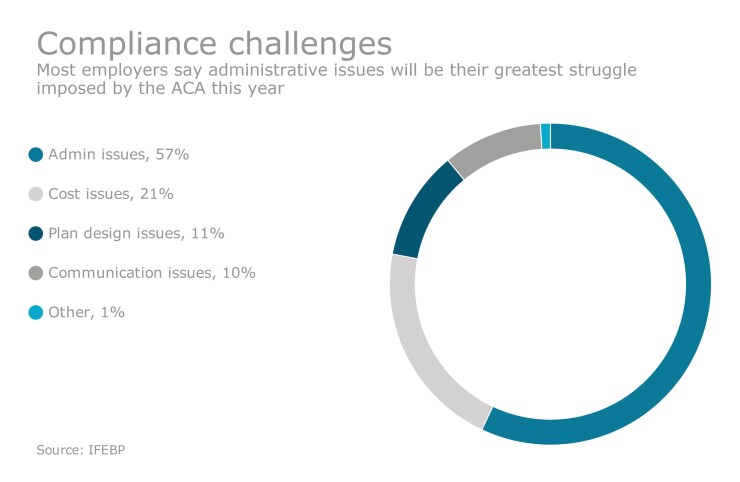The rise of the contract workforce in cities across the nation, and questions about whether these workers are eligible to access company-sponsored health benefits, has created confusion. It is up to advisers to stay on top of health insurance regulations to protect clients from unexpected compliance-related stress and financial penalties.
Health insurance agents often function as de facto human resources and benefits departments for small business clients, providing additional counsel beyond healthcare. An adviser’s value increases exponentially when they understand the nuances of compliance guidelines to help clients stay ahead of any potential pitfalls.

Benefits professionals can help to keep clients out of compliance danger by keeping these tips in mind:
Understand employment law: It may seem simple to identify quickly which employees are full time and which are not; however, companies often make mistakes in this area. The Affordable Care Act’s employer mandate requires companies with 50 or more full-time and full-time equivalent employees provide health insurance. This can become even more complicated when a client has more than one office, including out-of-state locations, which could also influence employee count.
Benefits professionals with the practical understanding to remain up-to-date on important aspects of employment law – and access to trusted compliance expects – help protect their clients from unplanned and time-consuming regulatory audits and fines.
Confirm plans are ACA compliant: The Trump administration’s decision to increase the availability of short-term health insurance plans, along with the rise of Association Health Plans, has created buzz about the impact on the health insurance marketplace.
While these plans have a reduced price point, many may also include high out-of-pocket deductibles and other elements that do not adhere to ACA guidelines. For example, organizations with more than 50 workers that do not offer eligible employees with affordable coverage featuring ACA essential health benefits such as maternity and newborn care, mental health services and prescription drug benefits or coverage for pre-existing conditions may be subject to penalties.
In addition, several states have taken action to limit access to short-term health plans and AHPs. Advisers need to take some extra time to compare their clients’ chosen health plans to the full spectrum of ACA guidelines to confirm client compliance.
Enforce the importance of employee handbooks: The U.S. Bureau of Labor Statistics estimates only one in four small businesses has an updated employee handbook. Although not legally mandated, creating a manual that clearly outlines workplace benefits is a small group must-have. Another side benefit for advisers: handbooks are a good sales mechanism that display additional value-add options that might not be apparent to clients.
Advisers who stay abreast of changing health insurance regulations and employment law increase their value to clients. Those who step up and help clients mitigate and avoid compliance pitfalls save themselves and small group employers a bundle, while increasing the potential for future business growth.





